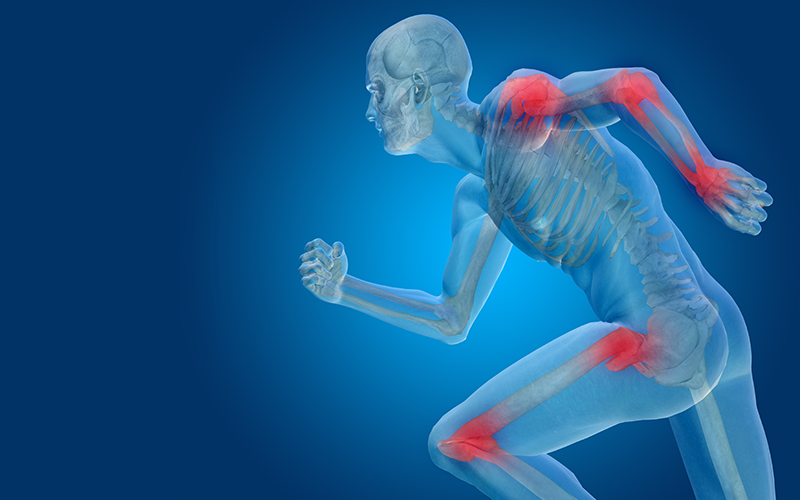 Social Media Content Packs – Stay Active Without Lifting a Finger!
Social Media Content Packs – Stay Active Without Lifting a Finger!
Ovarian Cysts Treatments: Effective Ways to Manage and Treat
Written by Healthcare Center » Updated on: June 17th, 2025

Ovarian cysts are sacs filled with fluid that form either inside or on the surface of the ovaries. While most cysts are harmless and go away on their own, some can cause pain, irregular periods, or complications that require medical attention. Understanding ovarian cyst treatments can help manage symptoms and prevent future issues.
In this blog, the leading gynaecologists in Gurgaon provide an expert insight into various treatment options for ovarian cysts, including natural remedies, medications, and surgical procedures.
What are Ovarian Cysts?
Ovarian cysts are common in women of reproductive age and often develop as part of the menstrual cycle. The ovarian cysts can be categorized into two main types:
Functional Cysts: These occur due to ovulation and usually resolve on their own.
Pathological Cysts: These may include dermoid cysts, cystadenomas, and endometriomas, which sometimes require medical intervention.
Ovarian Cyst Symptoms
Ovarian cysts usually do not cause symptoms, but when they do, the most common ones include:
● Pelvic pain: A dull or sharp pain in the lower abdomen on the side where the cyst is located.
● Bloating or fullness: A feeling of heaviness or bloating in the lower abdomen.
● Irregular periods: Changes in menstrual cycle patterns, including heavy or light bleeding.
● Pain during intercourse: Discomfort or pain during or after sexual intercourse.
● Frequent urination: Increased pressure on the bladder causes the need to urinate more frequently.
● Difficulty emptying the bladder or bowels: Large size cysts can put pressure on nearby organs.
● Nausea and vomiting: Particularly if the cyst ruptures or causes complications.
● Fever and severe pain: If an ovarian cyst bursts or twists (torsion), it can cause intense pain and require immediate medical attention.
When Do Ovarian Cysts Require Treatment?
Many ovarian cysts don’t need treatment and disappear within a few months. However, medical attention is necessary if you experience:
Persistent pelvic pain.
● Irregular menstrual cycles.
● Heavy or painful periods.
● Bloating or fullness in the abdomen.
● Difficulty urinating or bowel movements.
● Sudden severe pain, which could indicate a ruptured cyst.
Can ovarian cysts be cured?
Ovarian cysts can be managed depending on their size, type, and symptoms.
Ovarian Cyst Treatment Options
1. Watchful Waiting
If the cyst is small, not causing symptoms, and appears non-cancerous, doctors may recommend monitoring it through regular ultrasound scans. Many functional cysts resolve on their own within a few months.
2. Medications
● Hormonal Pills: These help regulate the menstrual cycle and prevent the formation of new cysts. However, they do not shrink existing cysts.
● Pain Relievers: Over-the-counter medications like ibuprofen can help manage discomfort.
3. Surgical Procedures
● Laparoscopy: A small surgical procedure used for smaller cysts. A tiny incision is made, and the cyst is removed using a laparoscope.
● Open Surgery: A more invasive surgery is required for larger cysts or if cancer is suspected.
4. Lifestyle and Home Remedies
● Healthy Diet: Eating a balanced diet with anti-inflammatory foods such as leafy greens, nuts, and omega-3-rich foods can help reduce symptoms.
● Regular Exercise: Helps maintain a healthy weight and hormone balance.
● Stress Management: Practices like yoga and meditation can help regulate hormones.
5. Treatment for Complications
● Ovarian Torsion: If a cyst twists the ovary, emergency surgery is required to prevent damage.
● Ruptured Cysts: Large cysts can burst, causing internal bleeding and severe pain, which may require hospitalization
Can Ovarian Cysts Be Prevented?
While ovarian cysts cannot always be prevented, you can lower your risk by:
● Maintaining a healthy weight.
● Managing stress and hormonal imbalances.
● Regular gynecological check-ups to detect cysts early.
● Using hormonal birth control if advised by your doctor.
When to See a Doctor?
If you experience persistent pelvic pain, bloating, or irregular periods, consult a gynecologist for an evaluation. Early detection and necessary treatment can help prevent complications.
Conclusion:
Ovarian cysts are common and often harmless, but in some cases, they require medical intervention. Treatments range from simple observation and medication to surgical removal, depending on the size, type, and symptoms of the cyst. If you suspect you have ovarian cysts, consult a gynecologists doctor near you for a proper diagnosis to find the ovarian cysts' reasons and treatment.
Note: IndiBlogHub features both user-submitted and editorial content. We do not verify third-party contributions. Read our Disclaimer and Privacy Policyfor details.
Copyright © 2019-2025 IndiBlogHub.com. All rights reserved. Hosted on DigitalOcean for fast, reliable performance.







